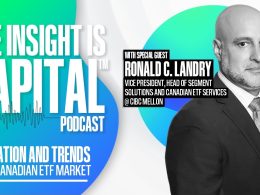by Graham Summers, Phoenix Capital Research
With so much hanging in the balance, I went to Paris, France to witness the results of the French elections first hand. I arrived Sunday morning, May 6th, the day of the second round of the election, which pitted Socialist Francois Hollande against Angela Merkel’s right hand man, Nicolas Sarkozy.
Everything was relatively quiet until the late afternoon. But once the elections were announced, the streets became jammed. Literally. By the look of things, French youth are celebrating Hollande’s victory by picking up all of their friends and then driving up and down the streets honking their horns incessantly. Most cars were packed to the brim with passengers hanging out of every window and even the sunroof waving French flags, singing, or simply yelling pro-Hollande slogans.
Indeed, at times traffic intersections become gridlocked as some cars simply parked in the middle of the street so their passengers could get on top of the vehicle and hang out (a few of them even lit cigarettes like they were sitting on a terrace instead of the roof of a fiat).
The Euro has taken the news much more poorly, gapping down sharply in the overnight session to below critical support at 1.30.
Stocks… are collapsing. The S&P 500 futures have gapped down from 1,360 to 1,346 as I write this Sunday night.
This shouldn’t be a surprise to anyone. Virtually every poll showed Hollande winning the election. And how exactly is the election of a socialist who proposed the following Euro-positive…
- Proposed raising tax rates on high-income earners from 41% to 75%.
- Wants to lower the retirement age to 60.
- Completely goes against the recent new EU fiscal requirements Merkel just convinced 17 EU members to agree to and has promised to try and renegotiate them to be looser.
Oh, and Greece also had an election which saw its Parliament swing in favor or anti-bailouts/ anti-austerity measures.
Remember, politics, not economics, rule Europe. What I mean by this is that most major decisions in Europe are determined by political agendas that ignore economic and financial realities.
This is at the core of the “welfare state” mentality that permeates Europe as a whole. The EU in general is comprised of an aging population that is more concerned about receiving the pensions/ health benefits/ social payouts that were promised to them by the system than anything else.
As a result of this, EU voters, who determine EU elections, don’t take action until what has promised to them comes under threat.
For this reason, EU political leaders will maintain their agendas regardless of whether said agendas go against financial or economic realities (or common sense for that matter) until these agendas begin to have real negative consequences for their political careers.
Well, we’re now at the point at which there are MASSIVE political consequences for the pro-bailout/ austerity measures political agenda. Which means… it’s only a matter of time before the EU in its current form collapses.
On that note, I fully believe the EU in its current form is in its final chapters. Whether it’s through Spain imploding or Germany ultimately pulling out of the Euro, we’ve now reached the point of no return: the problems facing the EU (Spain and Italy) are too large to be bailed out. There simply aren’t any funds or entities large enough to handle these issues.
So if you’re not already taking steps to prepare for the coming collapse, you need to do so now. I recently published a report showing investors how to prepare for this. It’s called How to Play the Collapse of the European Banking System and it explains exactly how the coming Crisis will unfold as well as which investment (both direct and backdoor) you can make to profit from it.
This report is 100% FREE. You can pick up a copy today at: http://www.gainspainscapital.com
Good Investing!
Graham Summers
PS. We also feature numerous other reports ALL devoted to helping you protect yourself, your portfolio, and your loved ones from the Second Round of the Great Crisis. Whether it’s a US Debt Default, runaway inflation, or even food shortages and bank holidays, our reports cover how to get through these situations safely and profitably.













